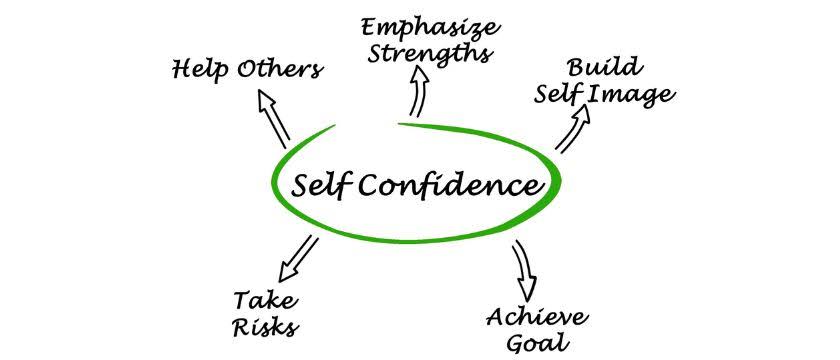Confidence is not an innate trait reserved for a select few—it’s a skill that can be developed and nurtured over time. As of July 2025, mental health experts and personal development coaches agree that confidence is one of the most important qualities for achieving personal and professional goals. It influences how we handle challenges, approach opportunities, and build relationships. When you have confidence, you’re more likely to take initiative, express your thoughts, and pursue ambitions that might otherwise feel out of reach. Understanding that confidence can be learned helps remove the myth that it is either present or absent at birth.
Identifying the Root of Self-Doubt
Before you can build confidence, it’s essential to recognize where your self-doubt originates. Often, it stems from past experiences—negative feedback, childhood conditioning, comparisons with others, or fear of failure. These internal narratives, if left unchecked, can create a mental loop that undermines self-belief. In 2025, therapists are using cognitive behavioral techniques and even AI-based journaling tools to help people trace and reframe these thought patterns. The first step to breaking free from self-doubt is acknowledging the mental dialogue and challenging the assumptions that fuel it.
Set Clear, Achievable Goals
Setting goals is a powerful confidence-building tool. It provides direction, structure, and a sense of purpose. However, confidence doesn’t grow from vague ambitions—it grows when you see yourself making real progress. Break larger goals into smaller, manageable steps. When each step is achieved, it reinforces the belief that you’re capable. This momentum builds over time. For example, instead of saying, “I want to be successful,” a clearer goal would be, “I want to complete an online course in project management by the end of this month.” As of 2025, goal-tracking apps like Habitica or Notion can assist in monitoring progress and celebrating small wins.
Practice Positive Self-Talk and Visualization
The way you speak to yourself matters. If your internal voice constantly criticizes or doubts your abilities, it erodes your confidence. One of the most effective techniques for reversing this habit is practicing positive self-talk. This doesn’t mean lying to yourself, but rather affirming your potential and progress. Phrases like “I am capable,” “I can learn from mistakes,” and “I’ve handled challenges before” can rewire your thinking.
Visualization is another proven technique. Athletes, entrepreneurs, and public figures often use it to mentally rehearse success. Picture yourself confidently giving that presentation, acing an interview, or handling a tough conversation. The brain often reacts to vivid imagery the same way it does to real experiences, and this mental training can boost your sense of preparedness and control.
Step Outside Your Comfort Zone Regularly
Growth and confidence live outside your comfort zone. Each time you do something that scares you—even in a small way—you expand your belief in what you’re capable of. This could be as simple as speaking up in a meeting, trying a new hobby, or attending a networking event. In 2025, the global conversation around “micro-bravery” is gaining popularity. It refers to taking small risks regularly to slowly build courage over time. Facing discomfort on a consistent basis helps normalize it and reduce the fear that usually holds us back.
Surround Yourself with Supportive People
Confidence can be fragile when surrounded by negative influences. The people in your environment play a big role in shaping your self-image. In 2025, more people are actively curating their social circles, both offline and online, to include those who uplift and motivate them. If you’re constantly around those who belittle your efforts or discourage your goals, your self-belief will suffer.
Seek mentors, coaches, or friends who challenge you with kindness and celebrate your achievements. Online communities and peer accountability groups have also grown in popularity, giving individuals a safe space to share progress and setbacks. Being reminded that you’re not alone in your journey can make the process of building confidence feel less daunting.
Embrace Failure as Part of Growth
Many people lack confidence because they fear failure. But failure is not proof of inadequacy—it’s proof that you’re trying. Some of the most successful people in the world failed repeatedly before achieving their goals. What sets them apart is that they learned from their mistakes and kept moving forward.
In today’s climate, especially post-pandemic and amidst the fast-changing job market of 2025, resilience is more valued than perfection. View each setback as feedback, not a verdict. Ask yourself, “What did this teach me?” rather than “Why did I mess up?” This shift in mindset turns failure into a tool rather than a threat.
Take Care of Your Body and Mind
Physical health has a direct impact on confidence. When you’re sleep-deprived, sedentary, or undernourished, your mood and energy levels suffer, which affects how you carry yourself and approach challenges. Regular exercise, even moderate walking, releases endorphins that improve mood and reduce anxiety. Likewise, eating balanced meals and staying hydrated keep your brain sharp and focused.
As of 2025, many professionals now prioritize mental fitness as much as physical. Meditation apps like Headspace and Calm, digital detox strategies, and even wearable devices that monitor stress levels are being widely used. A balanced body and mind create the internal stability needed for self-assurance.
Track Your Progress and Celebrate Wins
Confidence doesn’t grow in isolation—it builds from a pattern of achievement and recognition. Keep a journal or digital log of your accomplishments, no matter how small. Did you speak up when it was uncomfortable? Did you complete a task you were avoiding? Write it down. This record becomes evidence of your ability and growth.
Don’t wait for others to validate your progress—celebrate yourself. Reward systems, whether it’s treating yourself to something you enjoy or simply taking a moment to reflect, reinforce that you are capable and worthy of success. Over time, this builds an inner validation system that doesn’t rely solely on external praise.
Conclusion
Building confidence is a gradual journey that requires consistent effort and self-awareness. By understanding the root of your self-doubt, setting clear goals, taking risks, practicing positive thinking, and maintaining a healthy lifestyle, you can steadily build the inner strength needed to achieve your aspirations. As of July 2025, with resources more accessible than ever and a growing awareness of mental well-being, there has never been a better time to start investing in your confidence.
The key is to start small, stay committed, and remind yourself that confidence is not a fixed trait—it’s something you can grow, shape, and master with time and intention.



